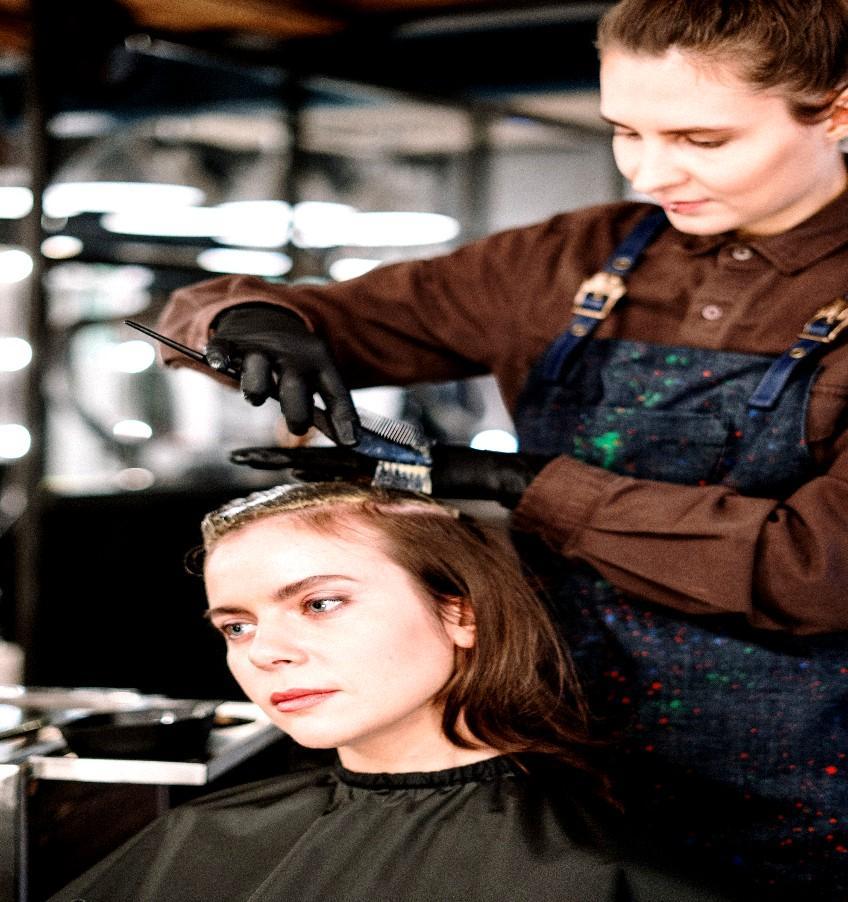Most women forsake their fashion sense in the late second trimester and third trimesters of their pregnancies.
During this period, their social activities are reduced, and as they become heavy, they tend to use light cloth wear, footwear, and pieces of jewelry.
It’s a challenge to feel beautiful when you are pregnant, and most women may not be able to keep their hair in good health as they would like if they were not pregnant.
Dying Hair While Pregnant
People often ask if pregnant women can dye their hair. Keep in mind that dyeing your hair can be dangerous to the embryo.
The question is whether it’s possible to dye hair during the first, second, or third trimester of the pregnancy and if it’s dangerous for the baby.
As there’s no definite answer, this topic always raises debate among hairdressers, doctors, researchers, and mothers-to-be. But experts can give many reasons in favor of postponing dying your hair.
Is it Safe to Dye Your Hair while Pregnant?
Yes, you can dye your hair when pregnant but should be in the second or third trimester of your pregnancy when your baby is almost fully developed.
Also, coloring your hair when pregnant should be done by a professional hairstylist.
When you should not get your hair dyed during your first trimester because dye contains many dangerous substances, which are known to cause cancer and genetic mutations.
These substances include the following and their side effects.
Resorcinol, which can suppress the immune system and be toxic to the skin.
Hydrogen peroxide is toxic to the digestive system, lungs, and nervous system.
Ammonia is a powerful skin irritant, which also causes breathing difficulties, nausea, and headaches.
Paraphenylenediamine can cause a severe inflammatory erection.
It’s known that inhaling ammonia vapor can be significantly harmful to people. Therefore, many companies make products without them, but substitutes can also be toxic. The same applies to other substances.
Therefore, the safety of coloring your hair while pregnant is relative, and depends on the stage of the pregnancy and the dye used.
Generally, bleaching your hair while pregnant should not cause harm, but you should avoid inhaling chemicals on using them on your body during pregnancy.
Why should you get your Hair professionally dyed while pregnant?
Professional hair stylists understand the safety concern of pregnant women that want to bleach their hair.
Nowadays, many organic cosmetics producers use Henna and Indigo (Basma) as the base for natural hair dyes, which can give you the shade of color you need safely.
Of course, the palette won’t be the same compared to chemical dyes; but it’s still possible to choose the most suitable color for you.
How to Make Bleaching Hair Safe during Pregnancy?
If you decide to color your hair yourself, you should take note of the possible negative effects of bleaching your hair during pregnancy, therefore, take the necessary precautions, including the following.
Do not dye your hair in the first three months of pregnancy; as your baby’s organs are just forming, it’s better not to put them at risk.
Use the dye with the least amount of chemical components, or even better, switch to natural Henna
Wear gloves and open the windows if you are doing it by yourself at home.
It’s necessary to take into account the hormonal changes in your body during pregnancy – which can also affect the textures of your hair; meaning that dyeing your hair could give you a completely unpredictable result.
Conclusion
Bleaching your hair during the first trimester of your pregnancy is not okay, and should be avoided, or rather use organic dye or products that contain less harsh chemicals.
However, coloring your hair during the second and third trimester of pregnancy is considered safe. Nonetheless, you should avoid inhaling chemicals and should be careful handling them.
